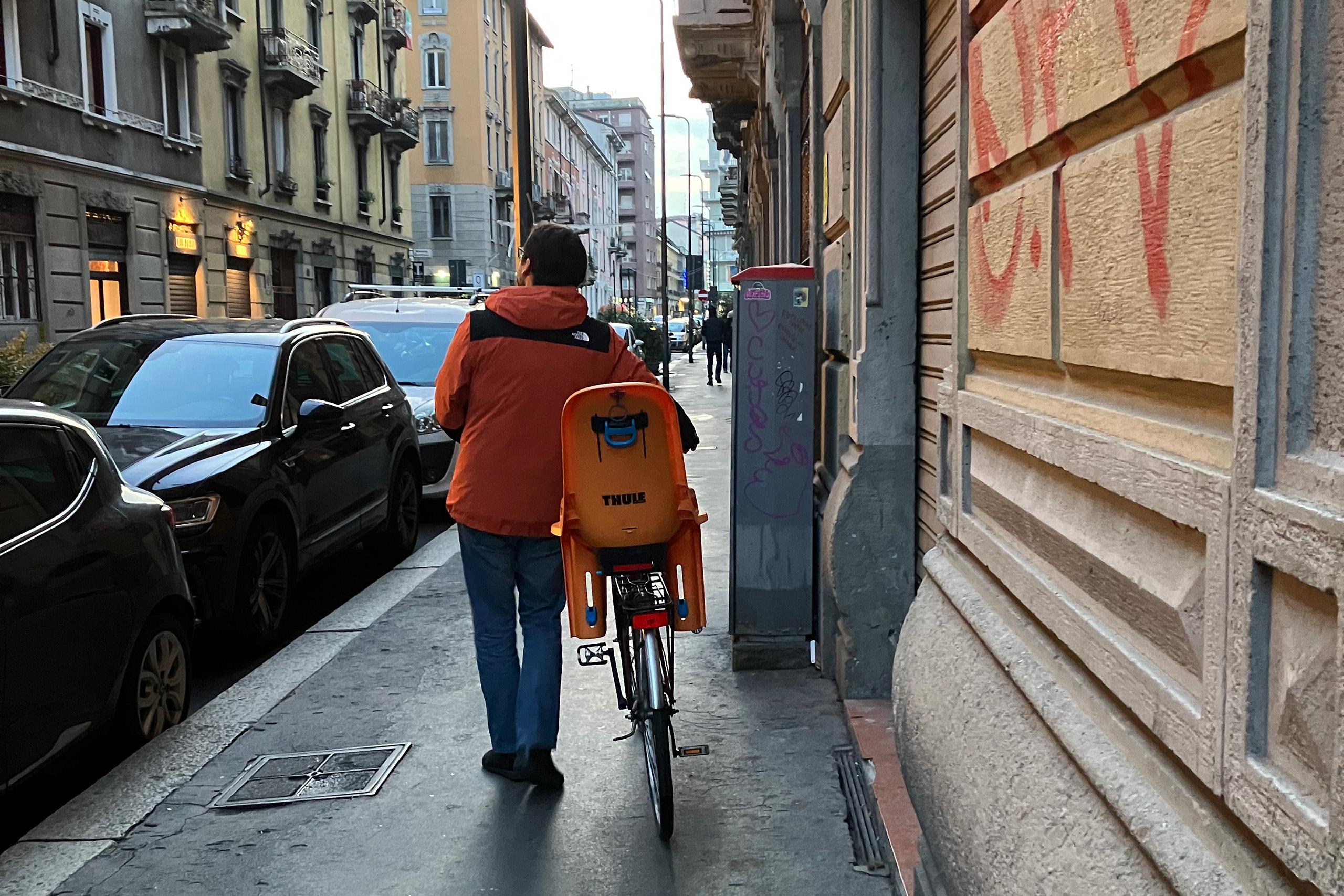
In pictures: Europeans grapple with unaffordable prices and housing insecurity
8 December 2022With prices rising in Europe, Investigate Europe spoke to citizens who are either trying to buy or rent a flat in their cities.
From an elderly Italian couple potentially being evicted from their home of 50 years and full-time workers being forced to move out of Milan due to rising rents, to the struggles of trying to buy a flat in Oslo or Brussels, we encountered cross-generational stories of exhaustion and frustration towards the current housing situation in Europe.
Italy
Gianfranco and Nunzia Cerlienco, Milan
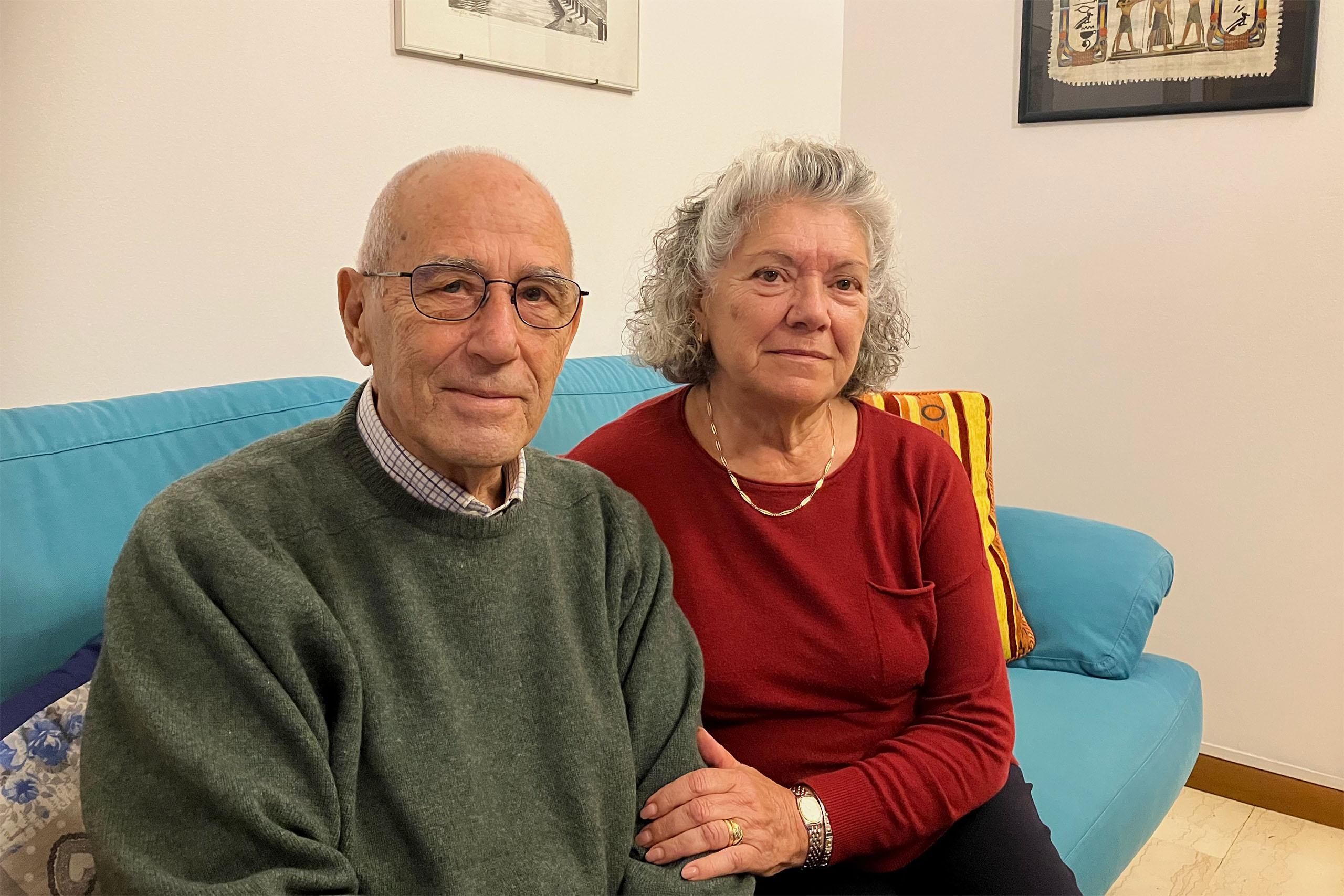
Gianfranco and Nunzia Cerlienco, aged 79 and 76, both former workers at a Milanese television factory, met on the factory’s assembly line in 1972 and have not been apart since. For 50 years, the couple has lived at 25 Via Lorenzo Valla, a building on the southern outskirts of Milan, which until now belonged to a national doctors pension fund, ENPAM, and which has recently been bought by the US asset management company Apollo, along with other 1,500 apartments in Milan. As a result, Apollo’s local real estate intermediary, Investire sgr, has already started notifying some tenants that they will have to move out of the 140 flats where Gianfranco and Nunzia live, to refurbish and, most probably, to resell them.
What are the problems you encounter with the housing situation in your city?
“We are terrified that they will send us away,” Gianfranco told Investigate Europe. “Last June, our neighbours – without being notified of the sale – started receiving letters cancelling their contracts. As the leases expire, they are not renewed. Out of the 140 flats, more than half have already received the letter.”
“Our contract expires in 2024, I will be 81 by then – where do you want me to go at that age? Our daughter grew up here, we took care of the flat with our own money, redid the electricity, the walls, the floors, and now they want to kick us all out.”
What should be done to solve them?
“We are on subsidised rent. We pay about €550 per month for 70m2 with expenses included. It is a low rent nowadays, even for the suburbs of Milan, but we spent 22 million lire (€11,000) to renovate it all, even though we were renting it. It was in a very poor condition when we arrived. We are ready to pay more for the rent, but not that much more, as we are pensioners and have no other income. We just would like to stay in the house where we have lived for so long,” Gianfranco said.
What are the problems you encounter with the housing situation in your city?
“We are terrified that they will send us away,” Gianfranco told Investigate Europe. “Last June, our neighbours – without being notified of the sale – started receiving letters cancelling their contracts. As the leases expire, they are not renewed. Out of the 140 flats, more than half have already received the letter.”
“Our contract expires in 2024, I will be 81 by then – where do you want me to go at that age? Our daughter grew up here, we took care of the flat with our own money, redid the electricity, the walls, the floors, and now they want to kick us all out.”
What should be done to solve them?
“We are on subsidised rent. We pay about €550 per month for 70m2 with expenses included. It is a low rent nowadays, even for the suburbs of Milan, but we spent 22 million lire (€11,000) to renovate it all, even though we were renting it. It was in a very poor condition when we arrived. We are ready to pay more for the rent, but not that much more, as we are pensioners and have no other income. We just would like to stay in the house where we have lived for so long,” Gianfranco said.
Franca De Lucia, Milan

Industrial designer Franca De Lucia has lived in Milan for the past 20 years since she started university. Seven years ago, the mother of two seven-year-old daughters, moved to Giambellino, a neighbourhood in the city’s southwest, which used to be associated with drugs and crime. Last year, Franca’s landlady asked her to move out of the flat and, after struggling to find an affordable new home in the city, she is now considering moving out of Milan.
What problems do you encounter with the housing situation in your city?
“I have been desperately looking for a two-bedroom apartment for my daughters and me for a year. I’ve tried everything: real estate agencies, advertisements, applications to the municipality. You can’t find anything for less than €1,200-€1,300 a month,” she says.
“But I live on my own, it’s only one income, I can’t put more than half of my income into rent alone. So I decided to move to the province of Pavia, 40km from Milan. I am very sad to leave Milan. This is my city now. When I arrived to study here, I felt welcomed, I would like my daughters to grow up here, but we cannot afford it.”
What should be done to solve them?
“One solution for me could be to reclaim all the brownfield sites, abandoned buildings, etc. and to do social housing projects with reduced prices.”
What problems do you encounter with the housing situation in your city?
“I have been desperately looking for a two-bedroom apartment for my daughters and me for a year. I’ve tried everything: real estate agencies, advertisements, applications to the municipality. You can’t find anything for less than €1,200-€1,300 a month,” she says.
“But I live on my own, it’s only one income, I can’t put more than half of my income into rent alone. So I decided to move to the province of Pavia, 40km from Milan. I am very sad to leave Milan. This is my city now. When I arrived to study here, I felt welcomed, I would like my daughters to grow up here, but we cannot afford it.”
What should be done to solve them?
“One solution for me could be to reclaim all the brownfield sites, abandoned buildings, etc. and to do social housing projects with reduced prices.”
Gloria Caressa, Milan
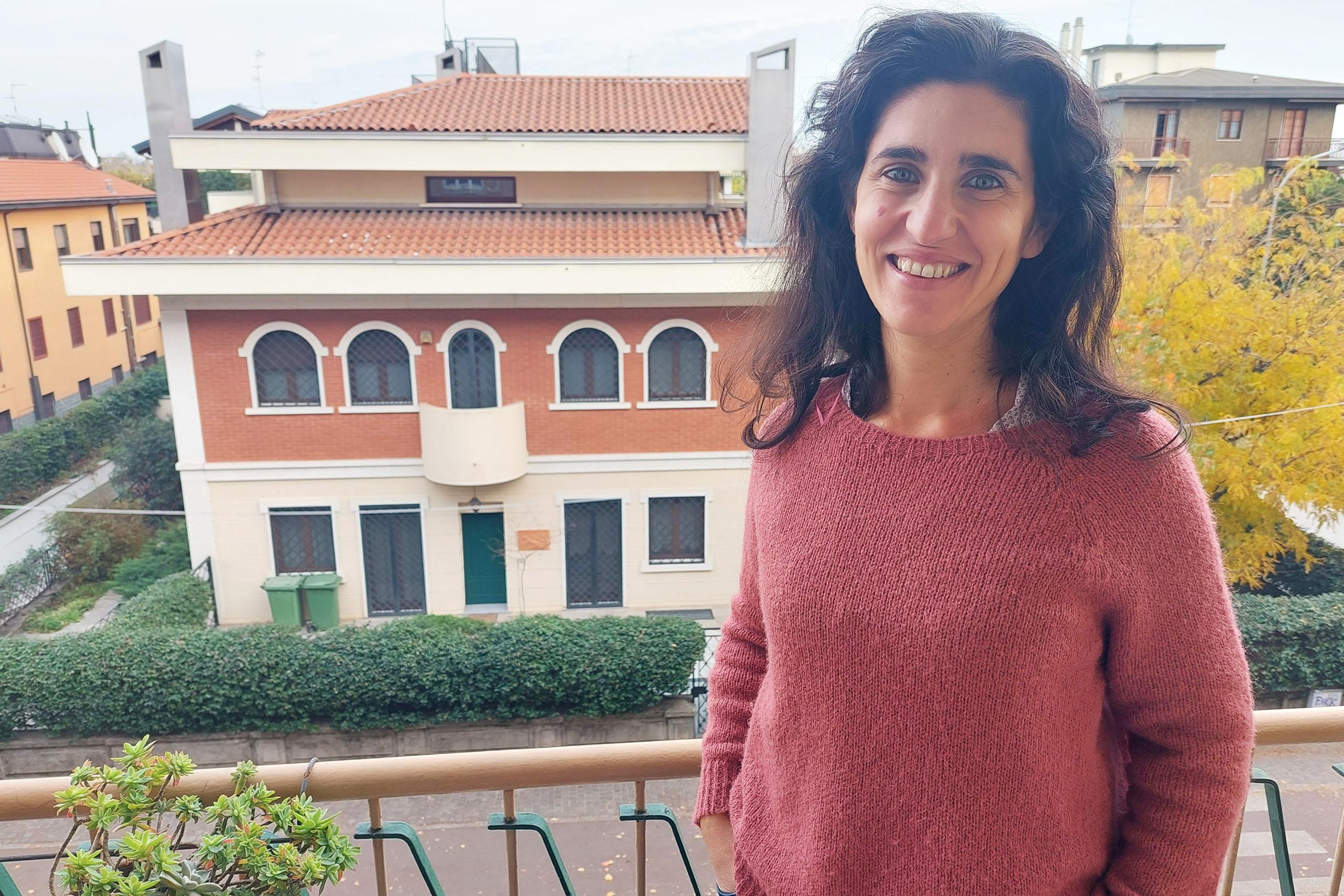
Gloria is a physiotherapist and a mother of one. Due to a health problem, she had to stop working and now relies on her partner’s income. The couple sold their small flat near Via Padova, a neighbourhood in the northeast of Milan, in the hopes of finding a bigger one for their growing family, but high real estate prices have forced them to move out of the city.
What problems do you encounter with the housing situation in your city?
“I have lived all my life in the neighbourhood of Via Padova, in the northeast of Milan. It used to be suburbia, but now it has become impossible to stay here. We own a small apartment, but even with the capital gain from the sale of our property, I could not find a bigger apartment here, nor get a mortgage, with only one income.”, Gloria told Investigate Europe.
“We have decided to leave Milan and move to the province. I am sorry because my parents live here and I would like to stay close to them. We didn’t have a choice. All my ties are here, especially around Via Padova. It is a story of community, of exchanges, of solidarity. All this will be lost if we leave.”
What should be done to solve them?
“In my opinion, the model to follow is that of co-housing: cooperatives where the owner has the usufruct of a property for life and if they want to expand it, they can change the usufruct, buy another flat, but keep the original property.”
“There was such as project in Milan where, alongside housing, a series of services were offered to promote social integration, cultural elevation, welfare needs within the urban area where the complex is located. But it is not easy to find these offers, there are few.”
What problems do you encounter with the housing situation in your city?
“I have lived all my life in the neighbourhood of Via Padova, in the northeast of Milan. It used to be suburbia, but now it has become impossible to stay here. We own a small apartment, but even with the capital gain from the sale of our property, I could not find a bigger apartment here, nor get a mortgage, with only one income.”, Gloria told Investigate Europe.
“We have decided to leave Milan and move to the province. I am sorry because my parents live here and I would like to stay close to them. We didn’t have a choice. All my ties are here, especially around Via Padova. It is a story of community, of exchanges, of solidarity. All this will be lost if we leave.”
What should be done to solve them?
“In my opinion, the model to follow is that of co-housing: cooperatives where the owner has the usufruct of a property for life and if they want to expand it, they can change the usufruct, buy another flat, but keep the original property.”
“There was such as project in Milan where, alongside housing, a series of services were offered to promote social integration, cultural elevation, welfare needs within the urban area where the complex is located. But it is not easy to find these offers, there are few.”
Norway
Anna Matilda Kirsebom Lanto, Oslo
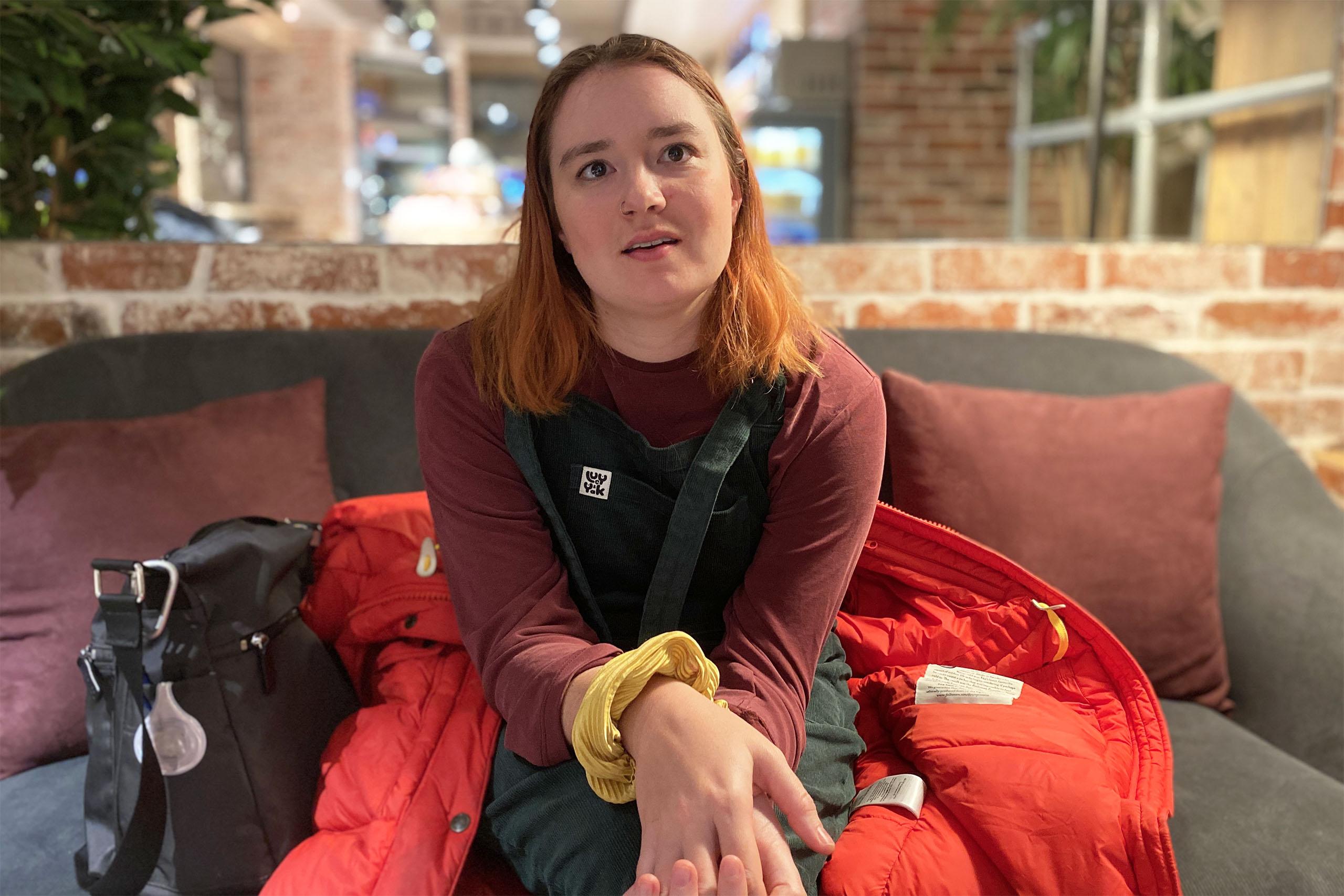
Anna Matilda Kirsebom Lanto is a 27 year-old full-time nurse who has just started looking for a property to buy in Oslo.
What problems do you encounter with the housing situation in your city?
“The prices. And that the decisive factor to be able to buy a home is whether you have parents that can help you finance it, or that you belong to a generation that bought [homes] when the prices were so low that everyone could get in. This is unfair,” she told Investigate Europe.
What problems do you encounter with the housing situation in your city?
“The prices. And that the decisive factor to be able to buy a home is whether you have parents that can help you finance it, or that you belong to a generation that bought [homes] when the prices were so low that everyone could get in. This is unfair,” she told Investigate Europe.
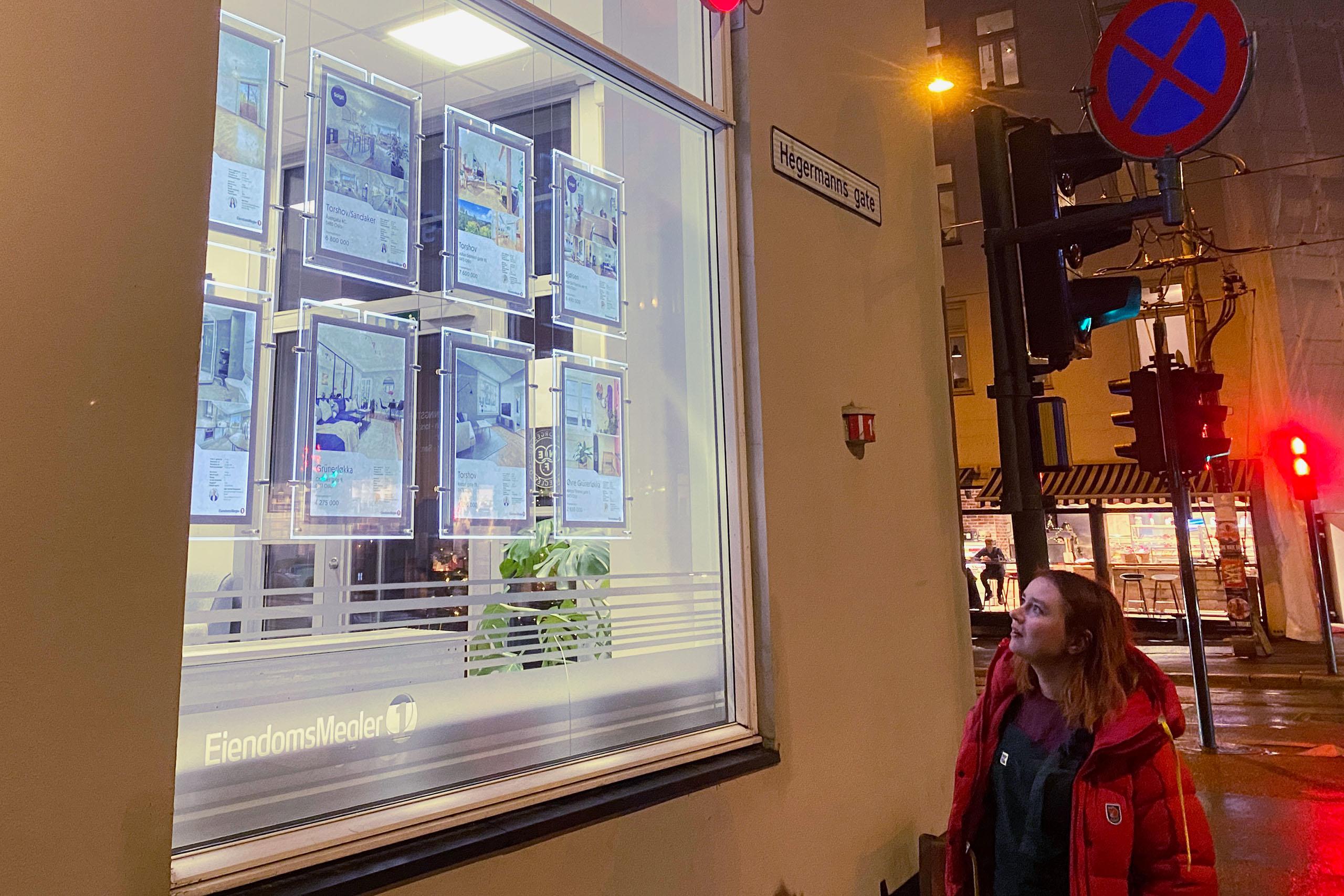
What should be done to solve them?
“The extreme price boom in the last decade must have something to do with policies, for instance the tax rebates on real estate for those who own. Could the rents not be regulated so they cannot become as extreme for tenants as today? I also think it provocative that you need so much equity to get a bank loan.”
“The extreme price boom in the last decade must have something to do with policies, for instance the tax rebates on real estate for those who own. Could the rents not be regulated so they cannot become as extreme for tenants as today? I also think it provocative that you need so much equity to get a bank loan.”
Belgium
Emilie Debus, Brussels
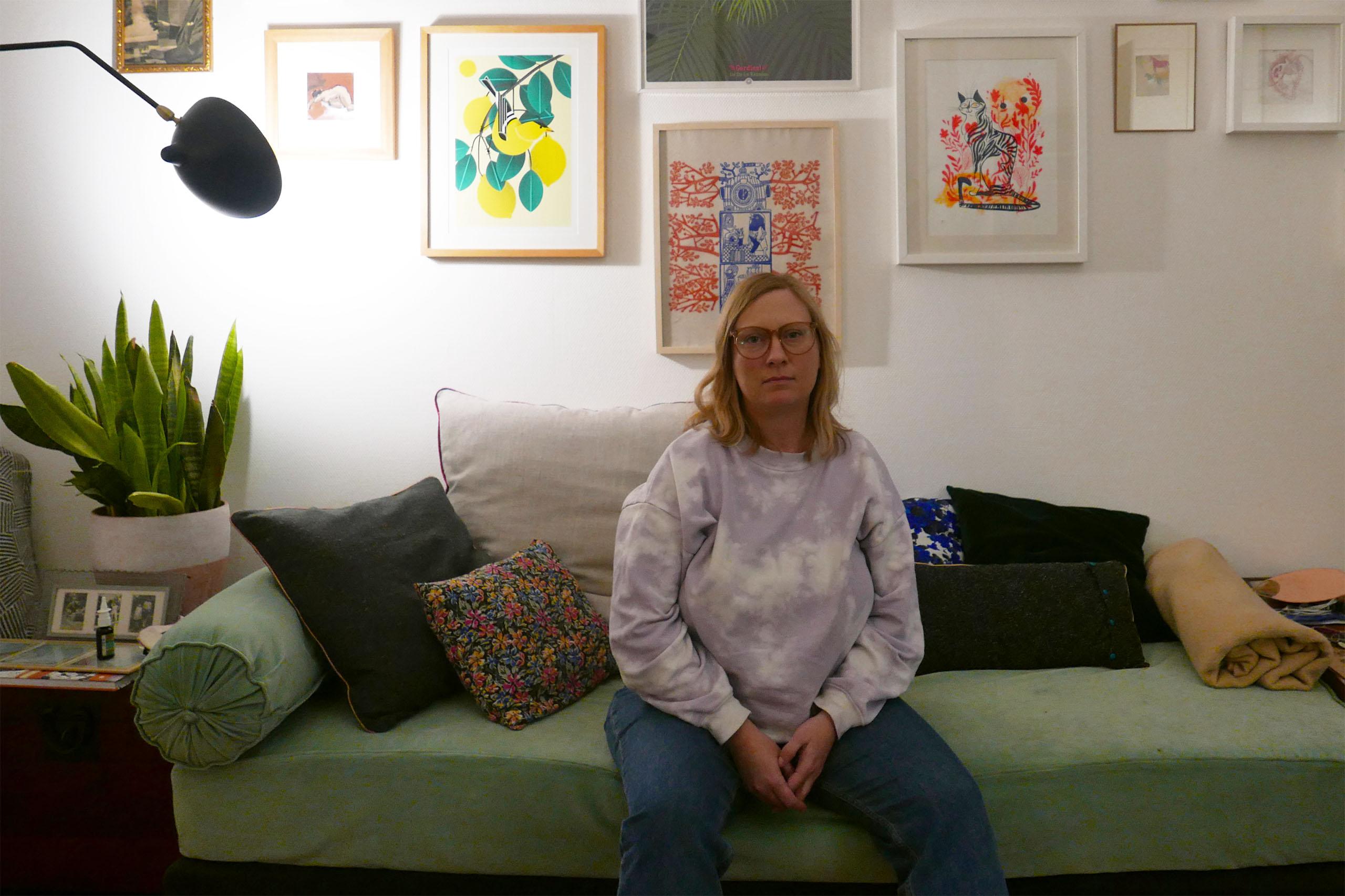
French graphic designer Emilie Debus arrived in Brussels in 2011. After a difficult start, in 2017, on a regular salary, she was able to get an estimation from the bank on how much she could borrow for a property. Back then, with a deposit of €10,000, she could borrow up to €180,000 and the bank covered 100% of the value of the property. But a few years later her plans changed: she is currently involved in a co-parenting project that requires the purchase of a house of almost 200m2. Most of the houses she and her friend find are in the range of €350,000 to €450,000, far beyond her borrowing capacity.
In addition to the general inflationary situation, Emilie is faced with another problem: the tightening of loan conditions. The banks no longer cover 100% of the value of the property. With €10,000, she can only hope to borrow €130,000 at best, which isn’t enough in Brussels. She had to turn to family and a friend to raise enough money to borrow €170,000 on her own. Her friend, although a homeowner, has very limited borrowing capacity because of his self-employed status. The search is slow and hope is gradually running out.
What problems do you encounter with the housing situation in your city?
“For me, there are two phenomena that make access to housing particularly difficult. On the one hand, there is the inflation of real estate, which has been very high in Brussels for several years. On the other hand, there are the banks, which are increasingly reluctant to grant loans,” Emilie told Investigate Europe.
In addition to the general inflationary situation, Emilie is faced with another problem: the tightening of loan conditions. The banks no longer cover 100% of the value of the property. With €10,000, she can only hope to borrow €130,000 at best, which isn’t enough in Brussels. She had to turn to family and a friend to raise enough money to borrow €170,000 on her own. Her friend, although a homeowner, has very limited borrowing capacity because of his self-employed status. The search is slow and hope is gradually running out.
What problems do you encounter with the housing situation in your city?
“For me, there are two phenomena that make access to housing particularly difficult. On the one hand, there is the inflation of real estate, which has been very high in Brussels for several years. On the other hand, there are the banks, which are increasingly reluctant to grant loans,” Emilie told Investigate Europe.
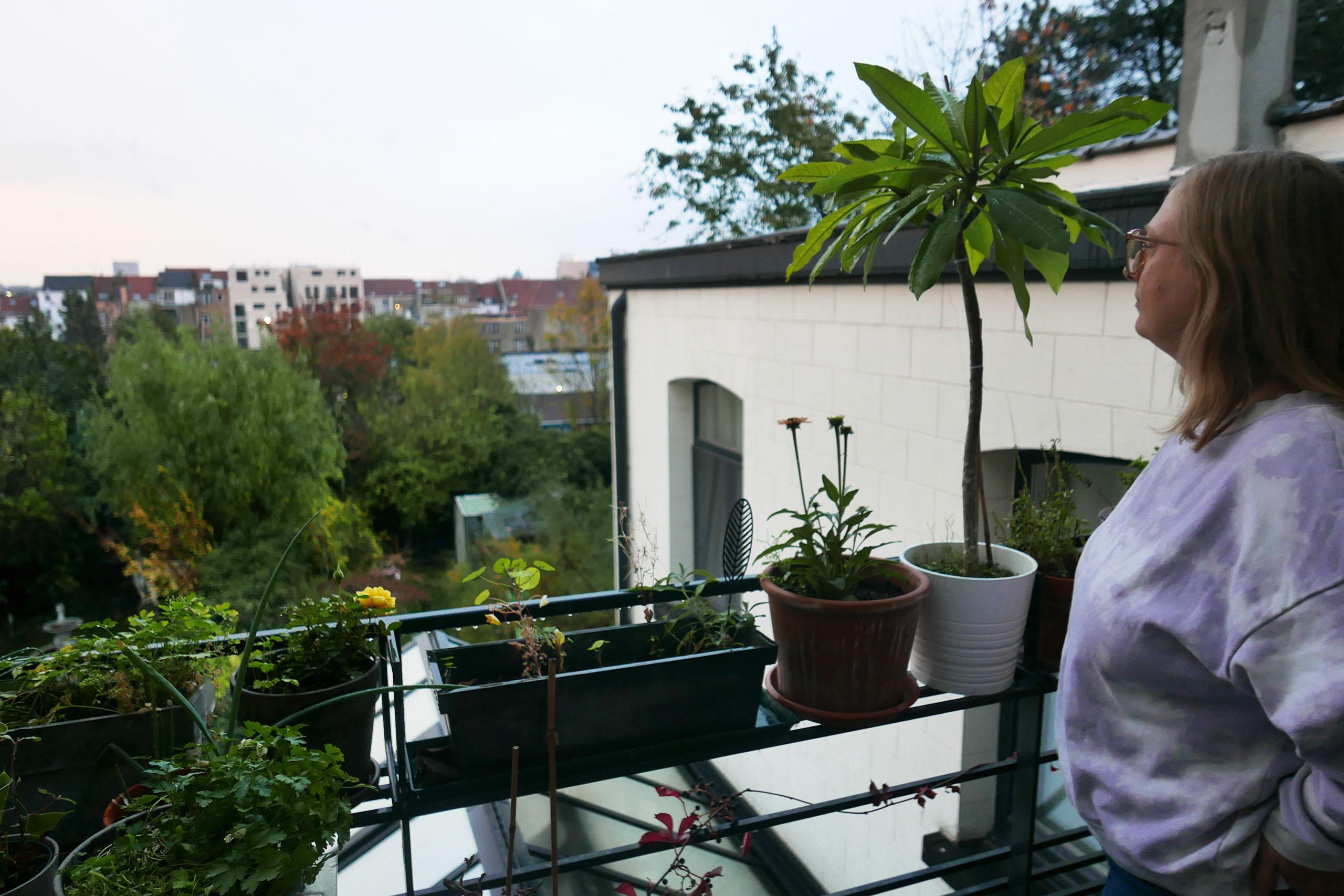
What should be done to solve them?
“One solution would be to lend 100% of the price of the property. We would just have to pay the notary and registration fees upfront. We have to stop with these astronomical demands for capital contributions. How do you do that when you have no inheritance or family to help? How can you have 50,000 euros set aside? It’s impossible!”
“One solution would be to lend 100% of the price of the property. We would just have to pay the notary and registration fees upfront. We have to stop with these astronomical demands for capital contributions. How do you do that when you have no inheritance or family to help? How can you have 50,000 euros set aside? It’s impossible!”
Greece
Angelo Skiadas, president of the Greek Association for the Protection of Tenants, Athens

From Athens, Angelo Skiadas, president of the Greek Association for the Protection of Tenants, told Investigate Europe how tenants in Greece are struggling with rising rents and are threatened by looming evictions.
What problems do you encounter with the housing situation in your city?
“The situation is explosive. Rents are rising constantly. They are rising uncontrollably. They have risen by 50% to 60% , in some areas by 100% these past three to four years.
Up until two decades ago, rents were capped at a price that was related to the objective value of the property. This was beneficial because it kept rents from ballooning and because with this cap, owners had no reason to evict tenants.
Now we have an epidemic of evictions. All owners are trying to evict tenants, or to blackmail them with evictions. Especially this past year after the pandemic – this is the new pandemic.”
What should be done to solve them?
“We ask for the return on the rent cap and for the raise of the minimum duration of rental contracts from three to six years.”
What problems do you encounter with the housing situation in your city?
“The situation is explosive. Rents are rising constantly. They are rising uncontrollably. They have risen by 50% to 60% , in some areas by 100% these past three to four years.
Up until two decades ago, rents were capped at a price that was related to the objective value of the property. This was beneficial because it kept rents from ballooning and because with this cap, owners had no reason to evict tenants.
Now we have an epidemic of evictions. All owners are trying to evict tenants, or to blackmail them with evictions. Especially this past year after the pandemic – this is the new pandemic.”
What should be done to solve them?
“We ask for the return on the rent cap and for the raise of the minimum duration of rental contracts from three to six years.”
